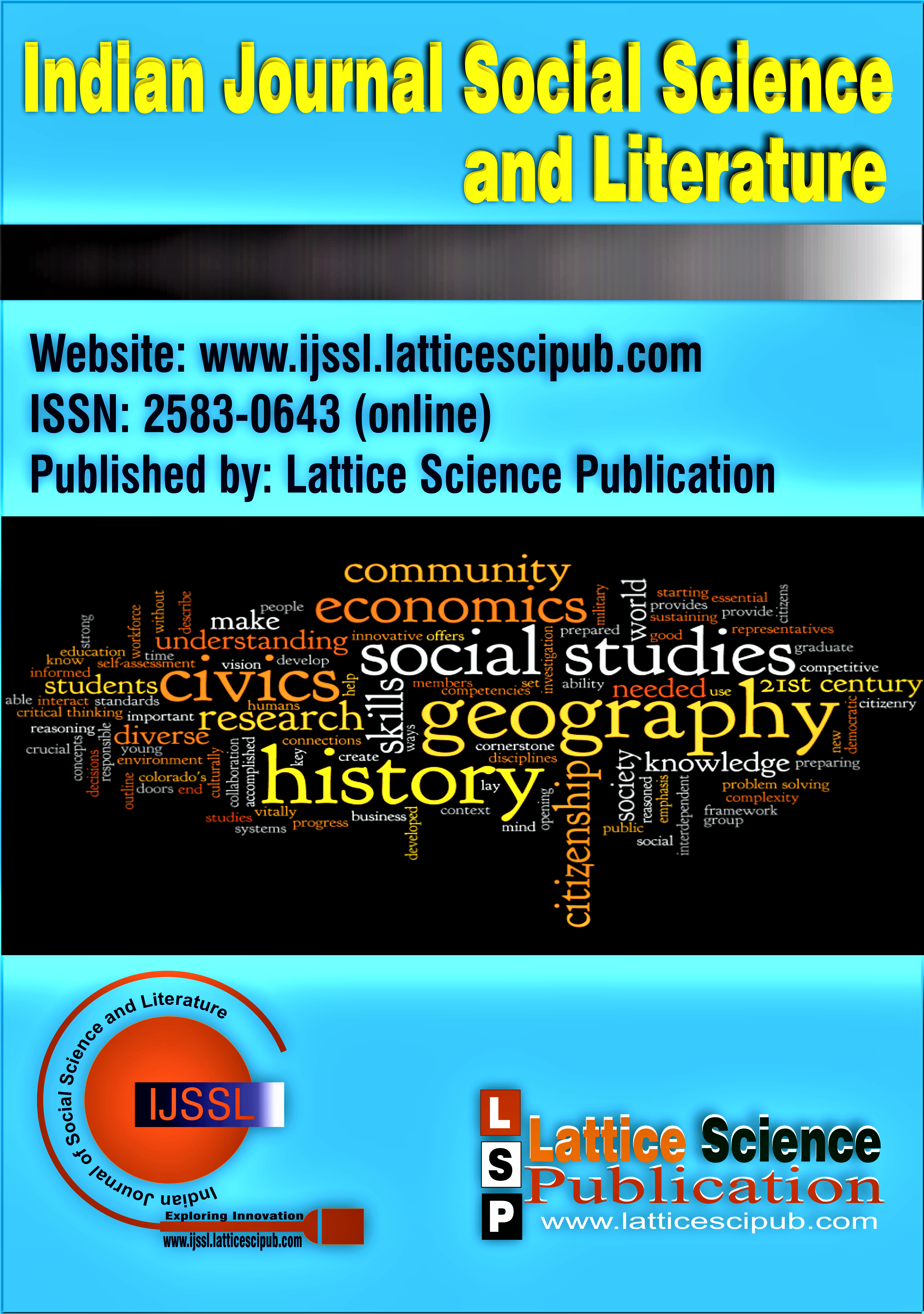Understanding Communalism, Secularism and Regionalism
Main Article Content
Abstract
The main objective of this research paper is to acquire an efficient understanding of the concepts of communalism, secularism and regionalism. Communalism is a concept in terms of which individuals are required to acquire information. They need to understand that in all societies, differences are there in religious groups. In spite of being differences in religious groups, individuals possess negative feelings in terms of other religions, hence, they are giving rise to communalism. Furthermore, India is a secular country. All the citizens of the country have the right to practice the religion of his or her own choice. Regionalism is the feeling or ideology among section of individuals, who are residing in a particular region. Communalism needs to be curbed. Individuals need to understand that all religions are vital and individuals are equal. Secularism needs to be reinforced. Regionalism needs to be fought against. Communalism and regionalism give rise to impediments within the course of progression of individuals, communities and nation as a whole. On the other hand, when individuals will acknowledge the meaning and significance of secularism, they will form positive viewpoints in terms of other religions as well as the individuals. Therefore, it is necessary for the individuals to be well-informed in terms of measures, which would be facilitating in eradicating communalism and regionalism and reinforcing secularism. The main concepts that are taken into account in this research paper are, communalism, measures to deal with communalism, secularism, measures to be implemented in reinforcing secularism, regionalism and measures to combat regionalism.
Downloads
Article Details

This work is licensed under a Creative Commons Attribution-NonCommercial-NoDerivatives 4.0 International License.
How to Cite
References
Reisyan, G.D. (2020). Management of Organizational Culture.
Retrieved October 20, 2023 from link.springer.com
Responsibility. (2020). Retrieved October 20, 2023 from
thefreedictionary.com
Sasson, R. (2020). What is the Meaning of Positive Attitude –
Definitions? Retrieved October 20, 2023 from
successconsciousness.com
Skills Development. (2020). Retrieved October 20, 2023 from
worldbank.com
Strategies to Promote Gender Equality in the Classroom. (2018).
Retrieved October 20, 2023 from elesapiens.com
Jenkins, J., & Ford, Dr. J. (2022). Event Study Are Effie Award
Winning Campaigns Associated with Improved Stock Market
Performance. In International Journal of Management and
Humanities (Vol. 9, Issue 4, pp. 1–9).
https://doi.org/10.35940/ijmh.d1542.129422
Tara, A. N., & Zhang, Y. (2023). Exploring The Relationship
Between Gender Discrimination and Job Satisfaction: A Perceived
Discrimination Perspective. In Indian Journal of Management and
Language (Vol. 3, Issue 2, pp. 1–6).
https://doi.org/10.54105/ijml.b1655.103223
Thanappan, Dr. S., L, B. A., M, A., G, S. G., & L, D. G. (2019).
Environmental Quality for EIA. In International Journal of
Engineering and Advanced Technology (Vol. 9, Issue 2, pp. 4501–
. https://doi.org/10.35940/ijeat.b4578.129219
Roopashree, Dr. M. R. (2023). Challenges While Implementation of
S at the Cardiac Counter of the Tertiary Care Hospital. In
International Journal of Preventive Medicine and Health (Vol. 3,
Issue 4, pp. 1–9). https://doi.org/10.54105/ijpmh.e1025.053423
Khera, Dr. S. (2022). Innovative Teaching Skills: A Necessity in the
Era of Globalization. In Indian Journal of Social Science and
Literature (Vol. 2, Issue 2, pp. 20–24





